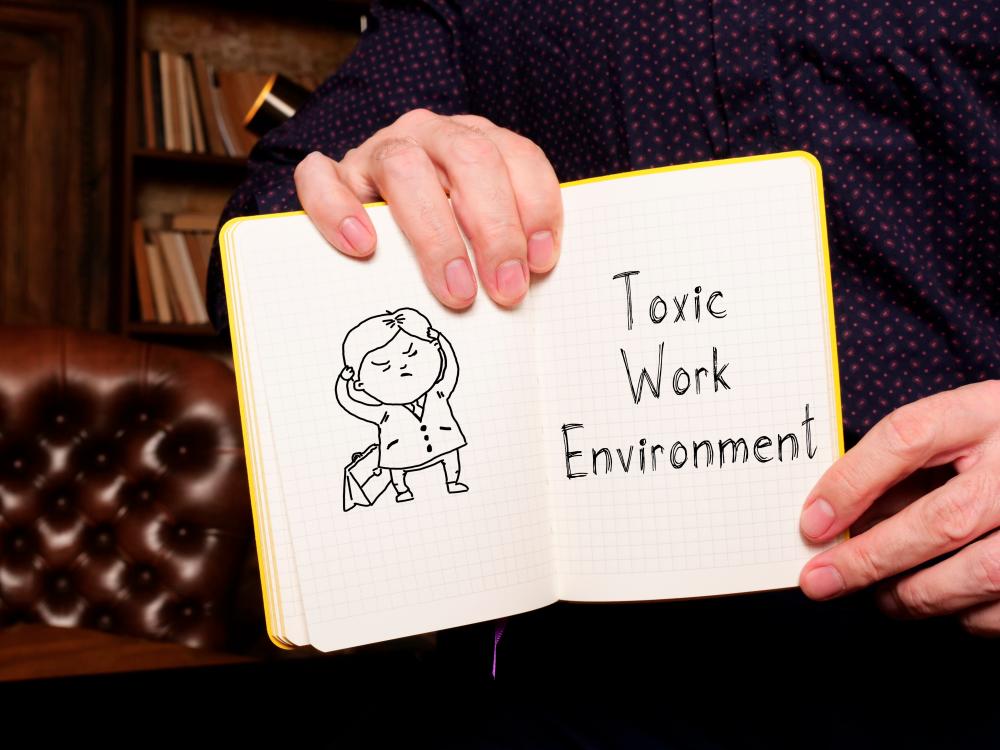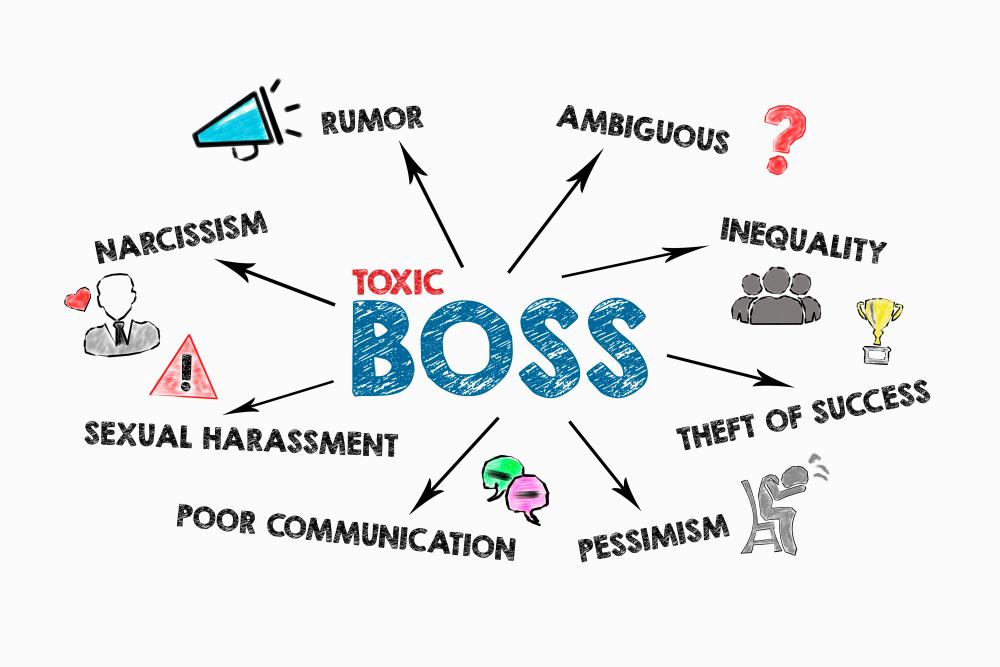HAVING a boss that is supportive and encourages you to work hard is a dream come true when it comes to your career. Indeed, one of the primary reasons for individuals leaving their jobs is the type of management they have. So, if you keep having the feeling that your boss is not supportive of you and your work and is always criticising it, it’s possible that it’s not just in your head.
Perhaps the issue is with your boss. Nothing is more hazardous than a poisonous boss. They not only infect the workplace, but they also foster a culture in which individuals are scared to speak out or seek help. This toxicity, over time, weakens employee confidence, has a detrimental influence on their career, and causes mental health to worsen.

Unrealistic expectations
Feeling pressured and unclear of your boss’s expectations is a dead giveaway that your boss is toxic. Rather of respecting your time, they ask you to drop everything to finish a job with an unreasonable deadline.
When you try to speak up, they either refuse to listen or interpret it as you not comprehending the gravity of the situation. The problem isn’t that the urgency isn’t recognised; it’s that the deadline is impossible to meet and the team is doomed to fail. You should be aware that if the bar is purposely set high and no feedback is provided to assist you in meeting requirements, that can be poisonous.
The boss does not notice your success
Your co-workers may state that you did an excellent job on a project, finished everything on schedule, and performed well this month. You receive accolades from individuals other than your employer. Instead, if your boss walks out of his office and says he wishes you had worked the same way from day one, it’s a clue that he’s a toxic employer. Worse, any time you receive a compliment, your supervisor may dismiss it or take credit for your ideas. When others try to compliment you, they may try to change the subject.

Is all about hitting targets than employees’ wellbeing
If your boss is always asking for results or progress reports but never asks their subordinates how they are, it may frequently lead to feelings of resentment since their employees begin to believe that their boss may not care about their wellbeing at all. In addition, requesting leave is always a problem, and your boss would prefer that your personal life be non-existent.
Favouritism
The first criteria for a team leader is that there should be no favouritism based on personal preferences. If you see your boss has a team favourite and is consistently praising one individual for the same job you are also performing, but not you, this is a disturbing symptom of a supervisor who prioritises their own personal prejudices over common professional goals. A boss with favourites may have co-workers who are adversaries. Be wary of ambiguous, subjective feedback from these managers that is focused on someone’s personal characteristics rather than their ability to accomplish the work properly.

Your boss is never wrong
Toxic bosses are notorious for abusing their power to circumvent regulations and processes. They feel that because of their position in the organisation, they are infallible. Instead of admitting a mistake or accepting responsibility for something that goes awry, they ignore it, assign blame, or create excuses. When presented with proof or critical critique, they interpret it as an assault and frequently seek vengeance for being questioned. Retaliation might take the form of not hiring someone or excluding them from meetings. Because of this, people surrounding the toxic boss or manager frequently become enablers, never saying no to them for fear of losing their jobs if they do.
You are not given a chance to grow
There are few things more frustrating at work than being stuck with the same regular chores for an extended length of time, especially after you have shown an interest in increasing your level of contribution. Every time you present fresh, sometimes radical, ideas, you receive the same responses: “Maybe next year”, “I need to review this with managers and other colleagues”, and the tired “This is not our way.” If you believe your concerns are being ignored, you may still exhibit your more strategic talents on a current project and recommend them to your employer.
You must deal with the problem now that you know how to detect a toxic employer. The manner in which you do so is heavily influenced by the toxicity you experience. If they fit into one of these groups, you should consider dealing with the matter over their head. A meeting with your boss’s head might be intimidating, but being prepared can help alleviate your fears. Document the incidents in as much detail as possible. Explain why you believe they endanger the work environment and what actions you would like higher-ups to take going ahead. At the end of the day, everyone deserves a pleasant working environment.













